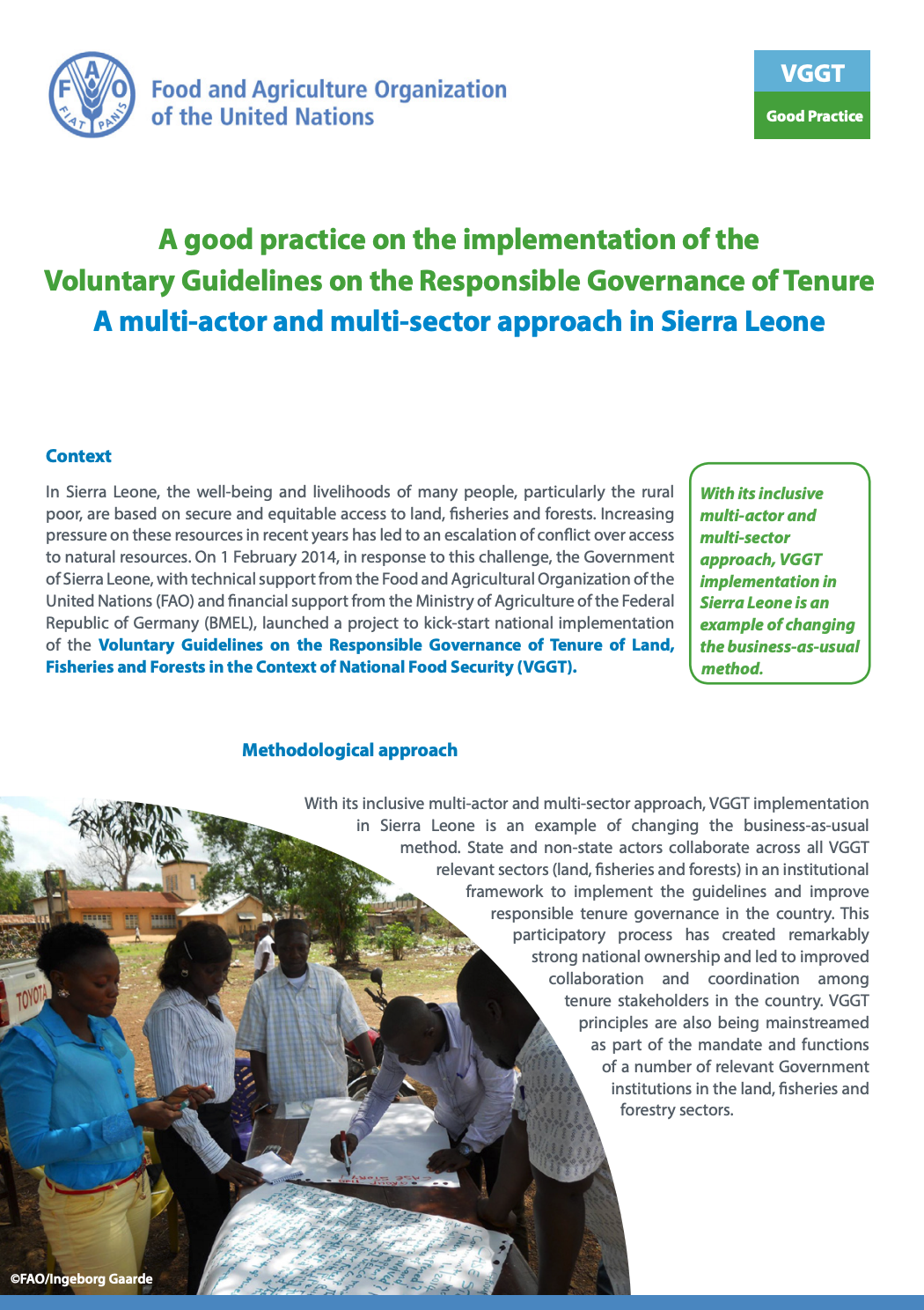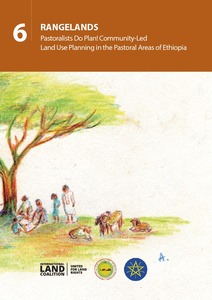Location
The International Land Coalition (ILC) is a coalition of civil society and intergovernmental organizations promoting secure and equitable access to and control over land for poor women and men through advocacy, dialogue and capacity building.
Resources
Displaying 91 - 95 of 261A good practice on the implementation of the Voluntary Guidelines on the Responsible Governance of Tenure: A multi-actor and multi-sector approach in Sierra Leone
In Sierra Leone, the well-being and livelihoods of many people, particularly the rural poor, are based on secure and equitable access to land, fisheries and forests. Increasing pressure on these resources in recent years has led to an escalation of conflict over access to natural resources.
RANGELANDS IMPROVING THE IMPLEMENTATION OF LAND POLICY AND LEGISLATION IN PASTORAL AREAS OF TANZANIA
No.7 issue of the Rangelands Series goes through experiences of joint village land use agreements and planning.
Nomadic Custodians. A Case for Securing Pastoralist Land Rights
A brief on the need to secure land rights for the world’s pastoralists, who manage rangelands that cover a quarter of the world’s land surface but have few advocates. Covers the different paths pastoralists take; resource scarcity in the face of uncertainty; pastoralism and land use; loss and fragmentation of pastoralist lands and blocking of livestock routes; managing climatic variability and climate change; initiatives for securing pastoralists rights to land (Niger, Tanzania, India, Ethiopia).
RISD’s intervention in pro-poor land policy implementation in Rwanda
Impact of an intervention by the Rwanda Initiative for Sustainable Development (RISD) in contributing to the implementation of pro-poor and equitable land policies. Through evidence-based awareness raising efforts, dialogue, advocacy and networking, RISD was able to influence policy implementation and promote the land rights of poor and vulnerable groups, including women.
Pastoralists do plan! Community-led land use planning in the pastoral areas of Ethiopia
This paper consolidates a set of case studies which document how pastoralists plan land and resource use in pastoral and agro-pastoral areas of Ethiopia. These case studies are drawn from the regional states of Afar, Somali, Southern Nations, Nationalities, and Peoples (SNNP), Oromia, and Gambella. They describe not only why, how, and when pastoralists plan, but also the management and governance structures that control planning processes and the later implementation of the plans.











